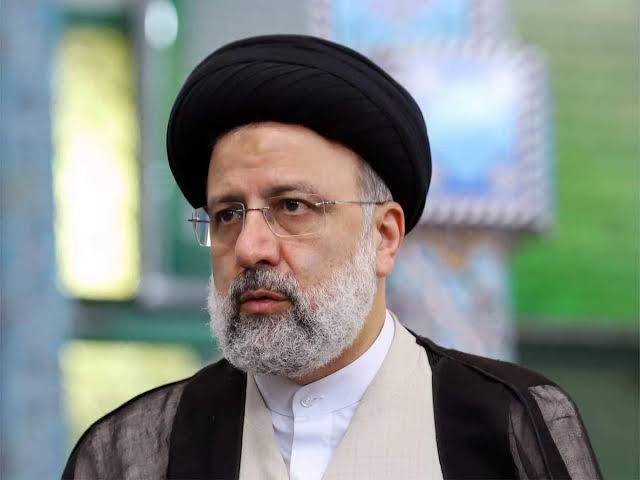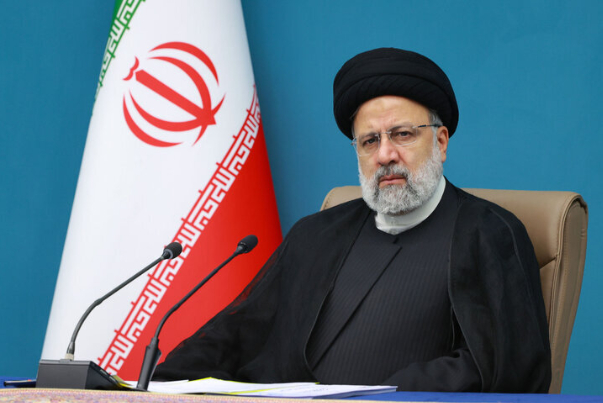Explore the life of the former President of Iran, Ebrahim Raisi, on our website. Learn about his biography and career in politics.
Table of Contents
Introduction
Former President of Iran, Ebrahim Raisi Biography
Ebrahim Raisi, a name that has echoed through the halls of Iranian politics, played a significant role in shaping the country’s direction. His journey from a modest background to the presidency of Iran is nothing short of remarkable. Understanding his life and contributions offers insight into the complex political landscape of Iran.
| Category | Details |
|---|---|
| Full Name | Ebrahim Raisi |
| Date of Birth | December 14, 1960 |
| Place of Birth | Mashhad, Razavi Khorasan Province, Iran |
| Education | – Qom Seminary (Islamic Jurisprudence and Law) |
| – Shahid Motahari University (PhD in Private Law) | |
| Religious Title | Hojjatoleslam |
| Early Career | – Began clerical studies at a young age |
| – Joined the judicial system of Iran in 1981 | |
| Judicial Positions | – Deputy Prosecutor of Karaj and Hamedan (early 1980s) |
| – Prosecutor of Tehran (1989-1994) | |
| – First Deputy Head of Judiciary (2004-2014) | |
| – Prosecutor-General of Iran (2014-2016) | |
| – Chief Justice of Iran (2019-2021) | |
| Political Career | – Ran for President in 2017, losing to Hassan Rouhani |
| – Elected President of Iran in 2021 | |
| Presidency | – Term: August 5, 2021 – August 3, 2025 |
| – Focused on economic reforms, combating corruption, and improving relations with neighboring countries | |
| Controversies | – Alleged involvement in the 1988 mass executions of political prisoners |
| – Criticized for human rights abuses during his judicial career | |
| Personal Life | – Married to Jamileh Alamolhoda |
| – Two daughters | |
| Honors and Titles | – Ayatollah title, a significant clerical rank |
| Other Notable Facts | – Known for his conservative views |
| – Strong supporter of the Supreme Leader, Ayatollah Ali Khamenei |

Early Life and Background
Born on December 14, 1960, in Mashhad, Iran, Ebrahim Raisi was raised in a religious family. His father, a cleric, influenced his early interest in religious studies. Raisi pursued his education at the Qom Seminary, where he delved deeply into Islamic jurisprudence.
Follow Us: Verified Pakistan
Early Political Involvement
Raisi’s political journey began in his teenage years. By the time he was 20, he had already started working within the Iranian judiciary. His commitment and sharp intellect quickly caught the attention of senior clerics and politicians.
Judicial Career
Raisi’s judicial career is marked by several key positions. He served as the Deputy Prosecutor of Tehran in the early 1980s and was later appointed as the head of the General Inspection Office. His role in the judiciary brought him into the limelight, especially with his involvement in high-profile cases.
Rise to Prominence
Raisi’s rise in Iranian politics was steady and significant. By 2004, he was serving as the First Deputy Head of the Judiciary, and in 2016, he became the custodian of the Astan Quds Razavi, a powerful religious and economic foundation. These positions solidified his reputation as a staunch defender of conservative values.
Presidential Campaign
Raisi’s presidential campaign was built on promises of economic reform and anti-corruption measures. His campaign strategy focused on appealing to Iran’s working class and religious conservatives. He promised to tackle unemployment, inflation, and economic disparity.
Presidency
Ebrahim Raisi won the presidential election in 2021 with a significant majority. His presidency has been marked by efforts to revive the economy, strengthen domestic industries, and reduce reliance on foreign imports.
Domestic Policy
Raisi’s domestic policies have centered on economic revitalization. He introduced measures to curb inflation and create job opportunities. His social policies aimed to improve healthcare and education, reflecting his commitment to the welfare of ordinary Iranians.
Foreign Policy
On the international stage, Raisi maintained a firm stance on Iran’s sovereignty. He sought to improve relations with neighboring countries while resisting Western pressure on Iran’s nuclear program. His foreign policy has been characterized by a blend of pragmatism and defiance.
Human Rights Record
Raisi’s human rights record has been a point of contention. Critics highlight his involvement in the 1988 mass executions of political prisoners. However, his supporters argue that he has taken steps to address human rights concerns during his tenure.
Personal Life
Raisi is married to Jamileh Alamolhoda, an academic. Together, they have two daughters. His personal life is relatively private, but he is known for his piety and simple lifestyle, which resonates with many Iranians.
Also Read: Iran President Ebrahim Raisi is dead in Helicopter crash, Iran News
Legacy and Impact
Raisi’s contributions to Iranian politics are profound. He has left an indelible mark through his judicial reforms and efforts to combat corruption. His presidency is likely to be remembered for its focus on economic recovery and social justice.
Public Perception
public perception of Raisi is divided. He enjoys strong support among conservatives and the working class, who see him as a champion of their interests. However, he faces criticism from reformists and human rights activists.
Comparison with Predecessors
Compared to his predecessors, Raisi’s approach is more conservative and rooted in traditional values. His policies reflect a continuation of Iran’s ideological stance but with a renewed emphasis on economic reform.
Conclusion
Ebrahim Raisi’s journey from a young cleric to the presidency is a testament to his enduring influence in Iranian politics. His legacy, shaped by his judicial career and presidency, continues to impact Iran’s future. Understanding his life and work provides a window into the challenges and complexities of governing a nation like Iran.
FAQs
1. What are Ebrahim Raisi’s main achievements? Raisi is known for his judicial reforms, anti-corruption measures, and efforts to revitalize Iran’s economy.
2. How did Raisi rise to power? Raisi’s rise was marked by his early involvement in the judiciary, significant political roles, and his leadership at the Astan Quds Razavi foundation.
3. What are the criticisms against Raisi? Critics focus on his human rights record, particularly his alleged involvement in the 1988 executions, and his conservative policies.
4. What is Raisi’s approach to foreign policy? Raisi emphasizes Iran’s sovereignty, seeks better relations with neighboring countries, and resists Western pressure on Iran’s nuclear program.
5. How does Raisi’s presidency differ from his predecessors? Raisi’s presidency is more conservative, focusing on economic reforms, reducing foreign dependency, and maintaining traditional values.







